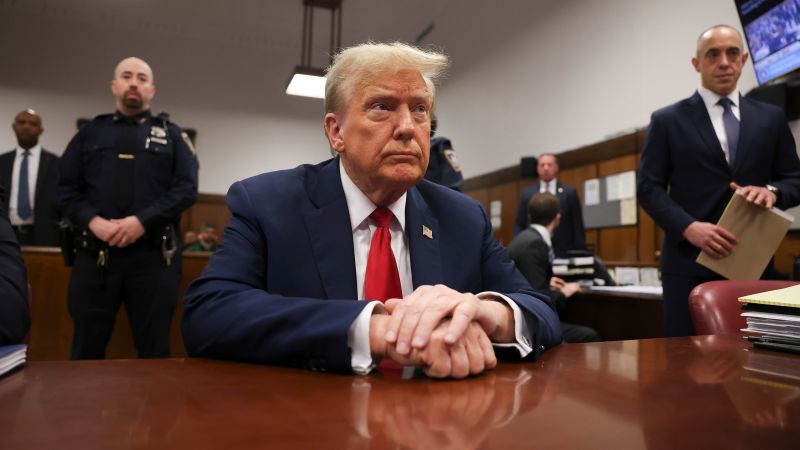
Trump has shared tales of courtroom spectacles with supporters. The reality is much more subdued
CNN
Former President Donald Trump’s dramatized retellings of his legal peril to supporters have veered considerably from the events actually unfolding in the courtroom.
An email Monday night from Donald Trump – subject line: “My farewell message” – carried a fateful warning to his backers. “Tomorrow is my GAG ORDER hearing,” it read. “If things don’t go our way, I could be thrown in jail.” Ominous? Certainly. Dubious? Yes, that too. Trump faced little risk of ending up behind bars Tuesday. Rather, the prosecution in his hush money trial wanted the former president to pay a modest $1,000 for violations of a court order against attacking witnesses, the district attorney and others involved with his case. They suggested 10 fines. At the end of Tuesday’s hearing, the judge had held off on making a decision for now. Throughout the first six days of his trial, Trump’s dramatized retellings of his legal peril have veered considerably from the events actually unfolding in and around Manhattan’s criminal courthouse. In social media posts and in fundraising pitches, a frantic Trump shares tales of courtroom spectacles and plots against him, untethered from the subdued – and sometimes sleepy – rhythms of the criminal justice system in motion. In one fundraising email on the first day of his trial, Trump claimed he “stormed out” of the proceedings. Reporters in the courtroom observed no such animations during the former president’s exit, but that didn’t stop Trump from repeating the falsehood in an email Friday.













